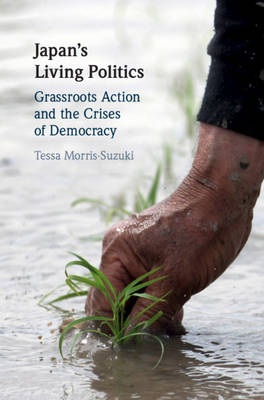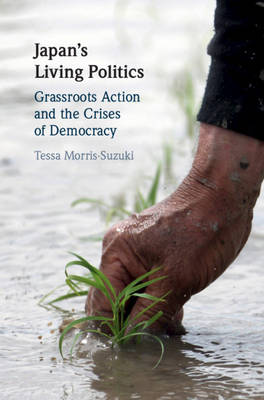
Je cadeautjes zeker op tijd in huis hebben voor de feestdagen? Kom langs in onze winkels en vind het perfecte geschenk!
- Afhalen na 1 uur in een winkel met voorraad
- Gratis thuislevering in België vanaf € 30
- Ruim aanbod met 7 miljoen producten
Je cadeautjes zeker op tijd in huis hebben voor de feestdagen? Kom langs in onze winkels en vind het perfecte geschenk!
- Afhalen na 1 uur in een winkel met voorraad
- Gratis thuislevering in België vanaf € 30
- Ruim aanbod met 7 miljoen producten
Zoeken
Japan's Living Politics
Grassroots Action and the Crises of Democracy
Tessa Morris-Suzuki
Hardcover | Engels
€ 127,45
+ 254 punten
Omschrijving
The first two decades of the twenty-first century have witnessed a rise of populism and decline of public confidence in many of the formal institutions of democracy. This crisis of democracy has stimulated searches for alternative ways of understanding and enacting politics. Against this background, Tessa Morris-Suzuki explores the long history of informal everyday political action in the Japanese context. Despite its seemingly inflexible and monolithic formal political system, Japan has been the site of many fascinating small-scale experiments in 'informal life politics': grassroots do-it-yourself actions which seek not to lobby governments for change, but to change reality directly, from the bottom up. She explores this neglected history by examining an interlinked series of informal life politics experiments extending from the 1910s to the present day.
Specificaties
Betrokkenen
- Auteur(s):
- Uitgeverij:
Inhoud
- Aantal bladzijden:
- 246
- Taal:
- Engels
Eigenschappen
- Productcode (EAN):
- 9781108490078
- Verschijningsdatum:
- 7/05/2020
- Uitvoering:
- Hardcover
- Formaat:
- Genaaid
- Afmetingen:
- 160 mm x 232 mm
- Gewicht:
- 498 g

Alleen bij Standaard Boekhandel
+ 254 punten op je klantenkaart van Standaard Boekhandel
Beoordelingen
We publiceren alleen reviews die voldoen aan de voorwaarden voor reviews. Bekijk onze voorwaarden voor reviews.









